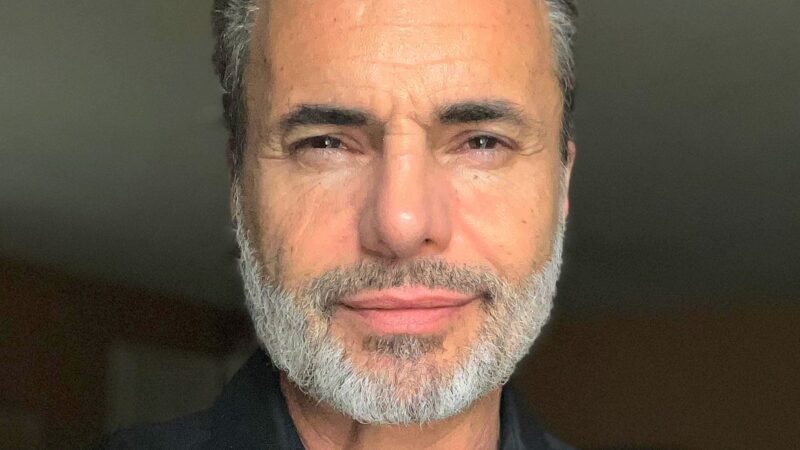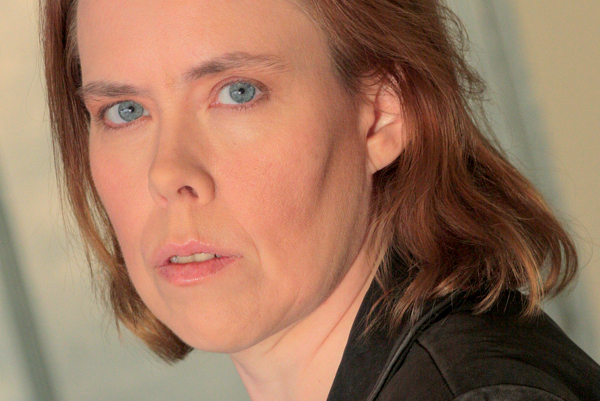
Maria Olsen is a South African actress/producer/casting director/writer/director who lives in Los Angeles. I work in all aspects of film production, and I own the production/casting company MOnsterworks66. I’ve lived and worked in Los Angeles for 11 years, and I’ve filmed across the country as well as in Canada. Next year I hope to expand my horizons and also start shooting in Europe. I work mostly in the horror genre, but I will consider any project that’s offered to me.
How would you describe you work as a producer and agent
As a producer, Maria Olsen’s main occupation and goal would be problem solving: from the problem of getting the money to shoot the film to the problem to replacing actors at a moment’s notice to the problem of fixing the coffee maker to the problem of taking an actor into the ER at 3am! Put simply, a producer’s job is to do what has to be done to get the film made. I’m not an agent, though, so I’m not able to share any insights with you about that aspect of filmmaking.
The MOnster is… pic.twitter.com/sOReUlBtk1
— Maria Olsen (@mariaolsen66) April 23, 2017
How did you get into producing
One day I received an email from Brandon Scullion of Iodine Sky Productions asking me to come on board his feature Live-In Fear as both talent and co-producer. I thought about it, realized that I no longer wanted to just wait for a “phone call from Spielberg”, so to speak, and wanted to take my destiny in filmmaking and acting into my own hands. I agreed, we made the film – which has since been screen at international festivals and won several awards – and we’re now waiting for it to be released by Wild Eye Releasing. I never looked back after Live-In Fear, and now I have many producing – and casting – credits to my name.
How did you get into producing
One day I received an email from Brandon Scullion of Iodine Sky Productions asking me to come on board his feature Live-In Fear as both talent and co-producer. I thought about it, realized that I no longer wanted to just wait for a “phone call from Spielberg”, so to speak, and wanted to take my destiny in filmmaking and acting into my own hands. I agreed, we made the film – which has since been screen at international festivals and won several awards – and we’re now waiting for it to be released by Wild Eye Releasing. I never looked back after Live-In Fear, and now I have many producing – and casting – credits to my name.
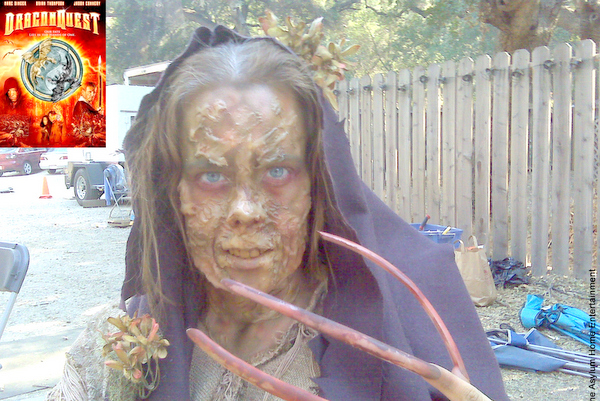
Dragonquest Hedona
Did you study producing
No, I never studied producing, but I do have a 20-year background in accounting and legal, which helps me greatly when it comes to drafting budgets and contracts. I have, of course, read books and articles and so on when I needed to educate myself on specific aspects of how things are done – like line producing, script breakdown etc – but I’ve never taken a course or went to school for producing.
How do you choose a project to produce
When deciding what projects I’d like to be attached to as producer, I would consider things like genre, story, uniqueness of concept, quality of script, overall cost of production (lower is better), number and type of locations, scope of production, keeping in mind that, for lower budget productions, simpler is better. As I’m also an actress, in most cases, I will be much more likely to choose those projects that have large supporting or leading roles for me.
Describe a few impressions about producing
I think a lot of non-producers don’t realize that the prime responsibility of being a producer is being a problem-solver. It’s totally not all red carpet premieres and Hollywood parties; it’s a HUGE amount of hard work, most of it behind the scenes, and it’s most certainly not glamorous. Producers are not magicians who can just pull money-rabbits out of hats, either, and it sometimes takes YEARS of hard work to fund a feature, and, sometimes, projects don’t get funded at all no matter how much work producers put into a project.
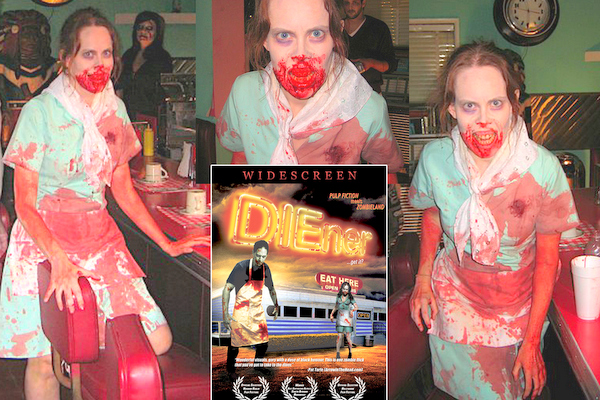
Rose Die-ner
Do you take courses to increase your craft
I used to attend Casting Director Workshops through Act Now in Los Angeles, which really helped me learn audition techniques (auditioning for the stage is very different from auditioning for film, and I had been a stage actor up until 2006). I worked under numerous casting directors during these workshops including Dean Fronk, Paul Ruddy, Chris Game, Orly Sitovitz, Valerie McCaffrey and James Levine.
What books do you read
I mainly read works in the horror, science fiction, fantasy, autobiography and history genres. I recently finished reading the entire Anita Blake, Vampire Hunter, series by Laurell K Hamilton, and, at the moment, I’m working my way through the Wheel of Time series by Robert Jordan.
How do you stay in shape
I try to go to gym every day, and my daily routine is 20 minutes in the sauna, swimming 20 laps and then another 20 minutes in the sauna. I also try not to eat sugar, carbohydrates or excessive sodium.
What do you look for in an actor, writer, and or director
In an actor, I look for talent, suitability for the role they’re auditioning for, ability to follow instructions and take directions and attitude (not necessarily in that order). You can, for instance, have the best actor ever but, if they don’t follow instructions or if they have a bad attitude on set, working with them is going to be hell.
In a writer, I look for someone who understands the process, who doesn’t have unrealistic expectations, who is talented, who is open to change as far as his or her script is concerned and who is easy to deal with. Again, attitude and understanding of the industry counts for a lot.
In a director, I look for someone whose vision for a particular project is in line with the writer’s vision, who communicates well, who understands talent and knows how to handle them and who understands how a film set operates.
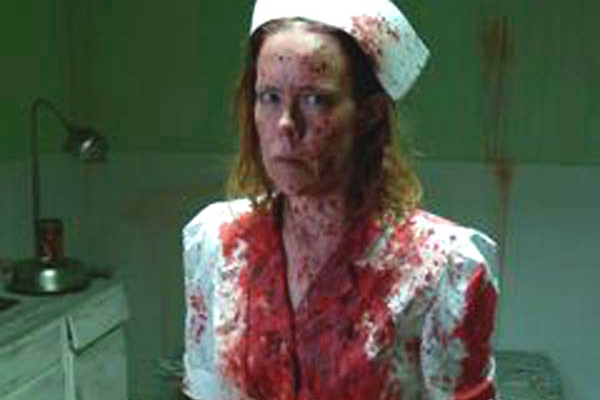
Shellter Large
How do you prepare for a project in hand
The first thing I do when offered a project – either to cast, produce or act in – is request the script. If I don’t think that a script is good, I would rather not be involved in a project.
What helps you during a production
I always find that clear, unemotional thinking and problem solving skills are what helps most during a production – especially from a producer’s point of view. If you’re on set as an actor, then qualities like good listening skills, having a good attitude, the ability to take direction quickly and easily, good communication skills. knowing your lines and scenes inside out and always being ready to go with whatever you have to do will serve you well.
Tell us about a creative choice you made on set
While shooting Live-In Fear on top of a mountain in Brian Head, Utah, one of our lead actresses had an unfortunate reaction to the ‘flu medication she took due to the excessive altitude. Even though she was feeling very under the weather, we went ahead and shot two of her scenes anyway because we felt that her condition improved the realism of her performance. We were right; and Arielle Brachfeld has since won the Best Actress award at the 2014 RIP Horror Film Festival for her portrayal of Mallory in Live-In Fear.
How can an actor find projects
In my opinion, actors should never only rely on their representation to find them auditions, and they should always be on the lookout for opportunities. For US-based talent, I would greatly recommend joining legitimate online casting websites like Actors Access, LA Casting, Backstage, Now Casting, IMDB and mandy.com (among others) and submitting yourself as much as possible. Every audition is an opportunity, and, even if you don’t book it, you’ll make new contacts and, if you put some effort into auditioning, you’ll impress people who will remember you in future.
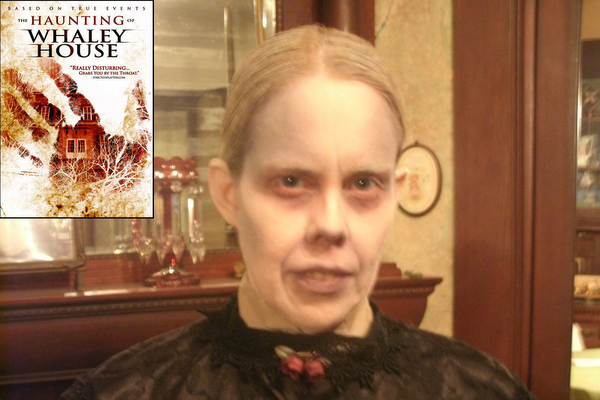
Whaley House
How can filmmakers finance projects
There are several ways to fund a film, and none are easy: self-funding (the best option if one wants to keep control over one’s film, but not an option for many of us); seeking investors (it’s hard to find willing investors); crowd-funding (it’s getting harder and harder to do this as the market is over-saturated) and equity crowdfunding (a fairly untested way that’s beginning to pick up steam).
What do you want from a director during production
My answer to this question will be different depending on whether I answer it as a producer or as an actor. As a producer, I need a director who knows the fine balance between shooting everything that’s needed / getting what’s needed out of the cast and crew and adhering to a very strict shooting schedule. I need a director who communicates well, who is time and cost conscious and who delivers the best film he or she can under the circumstances. As an actor, I need a director who can tell me what he wants clearly and concisely, a director who knows how to handle talent when they’re negotiating hugely emotional scenes and a director who understands, and respects, the acting process.
How do you prefer to work with a director in production
Again, the answer to this question depends on whether I’m on set as an actor or as a producer. As an actor, I like to have a quiet discussion with my director before we shoot any particular scene. I like to block the scene without emotion, and then, once I’m sure of the blocking, I can layer in the emotion to get to where the director wants me to go. As a producer, I will divide my time between being on set observing the shoot and online where I’m working on publicizing the project in order to attract fans and online supporters. In this case, I will generally just let the director do his thing unless I feel that, as a producer, I have something of value to contribute to the process.
Do you get offers from other film industries
To date, I haven’t received any offers from either Bollywood or Nollywood, although I have worked with Nollywood stars Omotola Ekeinde and Genevieve Nnaji.
What do you think an actor can do to get into the industry
It takes a lot of time, money, work and luck to get anywhere in the industry. An actor must be prepared to give their all to their dream, with no exceptions and no compromises. If they’re just starting out, they should submit for all roles that are suitable for them so that they can get as much auditioning experience as possible (good headshots, a decent credit list – start with theater work – and a reel are a must). Networking is also an important aspect, and it’s a good idea for actors to stay in touch with the industry professionals they meet, but in a way that is not intrusive or needy. Promote your work on social media, but don’t flog it to death as you will come across as desperate and needy.
What advice would you give to actors
The advice that I would give to actors who are thinking about pursuing acting as a career is two fold: If you THINK that acting might be for you, then it’s not, and you should choose another path. But if you cannot live without acting, then pursue it with all you have.
Facebook | Facebook MOnsterworks66 Facebook | MOnsterworks66 Casting & Crewing Facebook group | Twitter | IMDB | MOnsterworks66 IMDB


